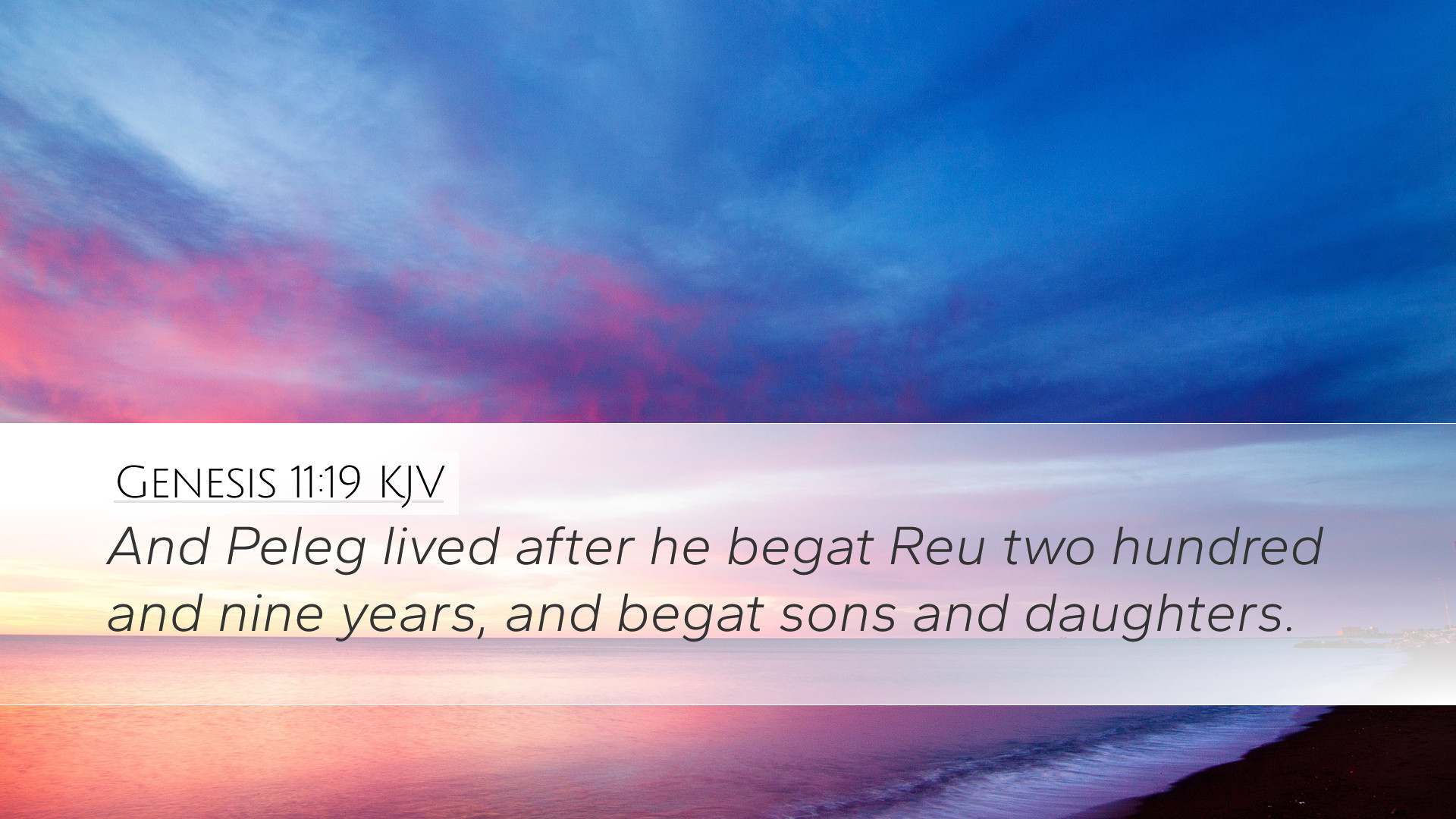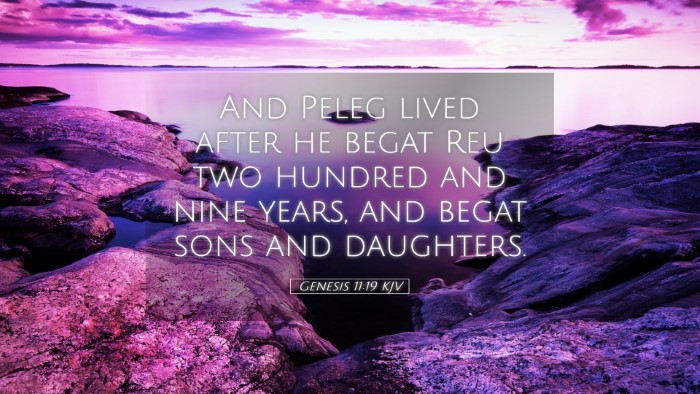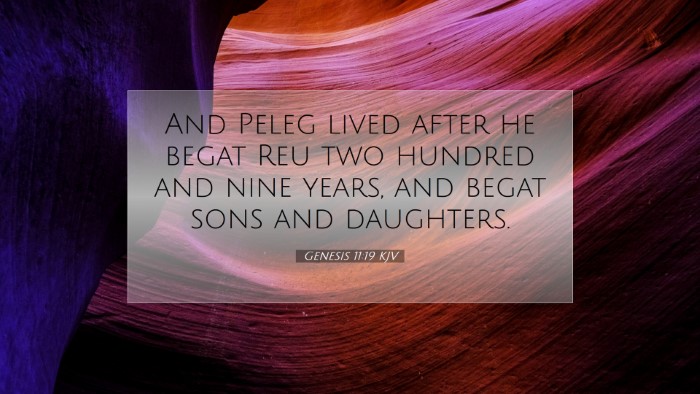Commentary on Genesis 11:19
Verse Text: "And Eber lived four and thirty years, and begat Peleg: and Eber lived after he begat Peleg four hundred and thirty years, and begat sons and daughters."
Introduction
This verse is part of the genealogical account in Genesis, which serves as a vital historical record connecting the figures of the Old Testament. In Genesis 11:19, we focus on Eber, a significant ancestral figure, and his son Peleg, whose name carries prophetic significance regarding the events of the earth during his lifetime.
Contextual Analysis
The genealogies in Genesis serve both historical and theological purposes. They connect the narrative of creation and the flood with the patriarchal history of Israel. The name Eber is usually associated with the term "Hebrew," suggesting that from Eber's lineage, the people of Israel would emerge. Therefore, this verse marks a key moment in the human story as it transitions from the broader narrative to the specific lineage that will shape Jewish history.
Insights from Commentators
-
Matthew Henry's Commentary
Matthew Henry emphasizes the significance of genealogies as intended by God to confirm His promise and covenant with humanity. He notes that Eber is the forefather of the Hebrews, emphasizing God's continued work through specific lineages. Henry points out the remarkable length of Eber's life and the blessing of numerous progeny, underscoring that God’s promises often extend through generations.
-
Albert Barnes' Notes on the Bible
Albert Barnes provides a detailed account of Eber's lineage and his connection to the broader narrative of Genesis. He focuses on the birth of Peleg, whose name means "division," which is interpreted as a reference to the division of languages at Babel. Barnes makes the case that each name in the genealogical record carries weight and meaning, reflecting God’s providence and the unfolding plan of redemption.
-
Adam Clarke's Commentary
Adam Clarke discusses the etymology of Peleg's name and its prophetic implications regarding the earth's division. He notes that this division, linked to the Tower of Babel, symbolizes both judgment and grace, as it results in the dispersion necessary for the spread of humanity across the globe. Clarke also stresses the importance of numbers in this passage, particularly the ages of the patriarchs, highlighting the longevity as a sign of divine favor.
Theological Significance
Genesis 11:19 has theological implications that resonate deeply with the themes of God’s sovereignty and the unfolding of his redemptive plan. The fact that Eber lives for over four centuries after the birth of Peleg suggests stability and continuity in the midst of divine judgment. It reinforces the notion that despite human sinfulness, God still acts to guide history toward His purposes.
Divine Judgment and Mercy
The narrative surrounding Eber and Peleg indirectly reflects the duality of God's judgment and mercy. Although judgment is evident in the divided languages and the scattering of people, the continuation through Eber signifies divine mercy and the persistent unfolding of God’s promise through a chosen lineage. This rabid theological insight serves as a reminder of hope and the enduring nature of God’s covenantal faithfulness.
Conclusion
In summary, Genesis 11:19 is a vital verse in understanding the genealogy leading to the nation of Israel and highlights the significance of Eber as an ancestor of the Hebrews. The contrasting themes of unity and division present in this verse reflect the complexities of God’s plan for humanity. Through a solid tradition of commentary from Henry, Barnes, and Clarke, we glean that the genealogy not only serves a historical function but also provides profound theological truths that resonate with believers and scholars alike.
Reflection Questions
- How does understanding the genealogy of Eber deepen our comprehension of God's covenant with Israel?
- What can we learn from the life span and lineage of Eber in relation to God's mercy and judgment?
- In what ways does Peleg's name and the associated events of division illustrate the sovereignty of God over human affairs?
Prayerful Consideration
As you reflect on Genesis 11:19, consider the implications of God's orchestration of history through human generations. Pray for wisdom to grasp the significance of each name and event in the biblical narrative, recognizing the continuity of God’s plan through the ages.


